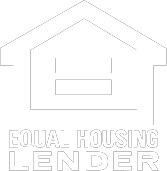Tulsa VA Loan
Scissortail Financial offers jumbo loans in Tulsa and Oklahoma with competitive rates and personalized service. We’ll guide you through the process smoothly.

Table of Contents
What is a Tulsa Jumbo Loan?
A Tulsa jumbo loan is a mortgage that exceeds the conforming loan limits set by the Federal Housing Finance Agency (FHFA). These loans are specifically designed for luxury properties and high-cost areas, allowing borrowers to finance larger loan amounts than conventional mortgages can accommodate. If you’re looking to purchase a high-value property in Tulsa or the surrounding areas, a jumbo loan may be the right solution for you.
Key Features of Jumbo Loans
Higher Loan Amounts
Jumbo loans allow you to exceed the conforming loan limits, enabling you to finance high-value properties that wouldn’t qualify under traditional mortgage caps.Competitive Interest Rates
While jumbo loans typically carry slightly higher interest rates than conforming loans due to the greater risk to lenders, borrowers can still find competitive rates tailored to their financial situation.Flexible Loan Terms
Jumbo loans offer flexibility in terms, with both fixed-rate and adjustable-rate options available, allowing you to choose the plan that best fits your long-term goals.No Private Mortgage Insurance (PMI)
Unlike conventional loans, jumbo loans typically don’t require private mortgage insurance (PMI), even if the down payment is less than 20%.Stricter Qualification Requirements
Due to the larger loan amounts, jumbo loans come with more stringent qualification criteria. Borrowers generally need a higher credit score, stronger income documentation, and significant assets to qualify.
Who Should Consider a Jumbo Loan?
If you’re purchasing a luxury home or a property in a high-cost area, and your financing needs exceed the standard limits, a jumbo loan could be an ideal choice. It’s important to work with a lender experienced in jumbo loans to ensure you meet the qualification requirements and secure the best terms available.
Tulsa Jumbo Loan Requirements
Due to the larger loan amounts and increased risk to lenders, qualifying for a jumbo loan in Tulsa requires meeting stricter standards than conventional loans. Borrowers must demonstrate financial stability, a strong credit profile, and sufficient income to cover the higher loan payments.
Key Requirements for a Jumbo Loan
Credit Score
Lenders typically require a minimum credit score of 700 or higher to qualify for a jumbo loan. A higher score improves your chances of securing better terms and rates.Down Payment
A down payment of at least 15% to 20% of the home’s purchase price is generally expected. Some lenders may require more, depending on the loan amount and your financial profile.Debt-to-Income Ratio (DTI)
To qualify for a jumbo loan, most lenders prefer a DTI ratio of 43% or less. This ratio measures your total monthly debt payments against your gross monthly income, ensuring that you can comfortably manage the higher mortgage payments.Income Verification
You’ll need to provide proof of stable and sufficient income through documentation such as recent pay stubs, tax returns, and bank statements. Lenders want to ensure you have the income to support the larger loan amount.Employment History
A consistent employment history of at least two years, especially in high-income roles, is essential. Lenders look for job stability and reliable income sources when considering jumbo loan applications.Cash Reserves
Borrowers are typically required to have significant cash reserves, usually the equivalent of six months’ worth of mortgage payments. This demonstrates financial security and the ability to manage the larger loan responsibly.
Jumbo Loans vs. Conforming Loans
When deciding between a jumbo loan and a conforming loan, it’s important to understand their distinct features and requirements. Conforming loans follow the guidelines set by the Federal Housing Finance Agency (FHFA) and are eligible for purchase by Fannie Mae and Freddie Mac. For 2024, the conforming loan limit is $766,550 for most areas.
Conforming Loans typically offer:
- Lower Interest Rates: Due to reduced risk for lenders, as they are backed by Fannie Mae and Freddie Mac.
- Lower Down Payment Requirements: Often starting at 3%, though specifics may vary.
- Private Mortgage Insurance (PMI): Usually required if the down payment is less than 20%, adding to monthly payments.
- Standard Qualification Criteria: Includes credit score, income, and debt-to-income ratio.
On the other hand, Jumbo Loans are designed for high-value properties and exceed the conforming loan limits:
- Higher Interest Rates: Typically higher due to increased risk to lenders.
- Larger Down Payments: Usually between 15% and 20% or more, to offset lender risk.
- No PMI Requirement: Generally not needed, even with a lower down payment.
- Stricter Qualification Criteria: Includes a higher credit score, lower debt-to-income ratio, and significant cash reserves.
Understanding these differences helps in selecting the mortgage that best fits your financial situation and property needs.
Tulsa Mortgage Programs
In Tulsa, a variety of mortgage programs are available to address different financial needs and homebuyer situations. Here’s a closer look at some of the popular options:
VA Loans
VA loans are tailored specifically for veterans, active-duty military personnel, and eligible surviving spouses. These loans offer several advantages, including favorable terms, no requirement for a down payment, and no need for private mortgage insurance (PMI). This makes them an excellent option for those who qualify, providing significant cost savings and accessible home financing.
Conventional Loans
Conventional loans are not backed by any government agency, unlike VA or FHA loans. They typically come with fixed interest rates and flexible terms, which can be customized to suit various financial situations. However, they generally require higher credit scores and larger down payments compared to VA loans. Conventional loans are a popular choice for those who meet the credit and down payment requirements.
FHA Loans
FHA loans are insured by the Federal Housing Administration and are designed to help borrowers with lower credit scores and smaller down payments. These loans are ideal for first-time homebuyers or those with less-than-perfect credit, making homeownership more attainable. The insurance provided by the FHA helps mitigate lender risk, allowing for more accessible loan terms.
USDA Loans
USDA loans are intended for homebuyers in rural areas and offer the benefit of no down payment. Backed by the United States Department of Agriculture, these loans are a great option for those looking to purchase a home in eligible rural and suburban areas. The lack of a down payment requirement can significantly reduce the upfront costs of buying a home.
Section 184 Loans
Section 184 loans are designed specifically for Native American homebuyers. These loans provide favorable terms and lower down payments, making them a beneficial option for those who qualify. The program aims to promote homeownership within Native American communities by offering accessible and affordable financing solutions.
Refinance Loans
Refinance loans allow homeowners to modify their existing mortgage terms or interest rate. This can be an effective way to reduce monthly payments or shorten the loan term, potentially saving money over time. Refinancing can be a strategic financial move if interest rates have dropped or if you want to change your loan’s structure.
Investment Property Loans
Investment property loans are geared towards purchasing properties for rental or investment purposes. These loans are designed to support real estate investors looking to acquire rental homes or other investment properties. They often come with different terms and conditions compared to standard home loans, reflecting the investment nature of the property.
Second Home Loans
Second home loans are used to purchase vacation homes or additional residences. These loans can have different requirements compared to loans for primary residences, reflecting the unique needs and financial profiles of second-home buyers. They provide an opportunity for individuals to own multiple properties.
Jumbo Loans
Jumbo loans are meant for high-cost properties that exceed the conforming loan limits set by government agencies. These loans typically come with stricter requirements but offer competitive rates for larger loan amounts. They are ideal for buyers looking to finance more expensive properties.
Down Payment Assistance Programs
Down payment assistance programs are designed to help first-time homebuyers with grants or low-interest loans to cover the down payment. These programs aim to make homeownership more accessible by reducing the financial barrier of the down payment, enabling more individuals to purchase their first home.
First-Time Home Buyer Programs
First-time homebuyer programs offer special benefits such as lower interest rates or down payment assistance. These programs are tailored to help new buyers enter the housing market with more favorable financing terms, making the process of buying a first home smoother and more affordable.
At Scissortail Financial, we are here to help you navigate these mortgage options and find the best solution for your needs. Our team is dedicated to providing personalized support and guidance throughout the home financing process.
FAQ's
Tulsa Jumbo Loan FAQ's
Most lenders require a minimum credit score of 700 or higher for jumbo loans due to the higher risk involved.
Jumbo loans typically require a down payment of at least 15% to 20% of the home’s purchase price.
No, jumbo loans generally do not require Private Mortgage Insurance (PMI), even with a down payment of less than 20%.
Lenders prefer a DTI ratio of 43% or less for jumbo loans to ensure that borrowers can manage higher monthly payments.
Yes, jumbo loans are available with both fixed and adjustable interest rates, providing flexibility depending on your financial situation and preferences.
There is no specific maximum limit for jumbo loans, but borrowing amounts depend on the lender’s guidelines, financial stability, and property value.
To apply for a jumbo loan, you will need to provide proof of income (pay stubs, tax returns), employment history, credit report, and possibly other documents such as bank statements and identification.
The approval process for a jumbo loan typically takes about 30 to 45 days. This timeline can vary based on the lender, your financial situation, and how quickly you can provide the required documentation.
